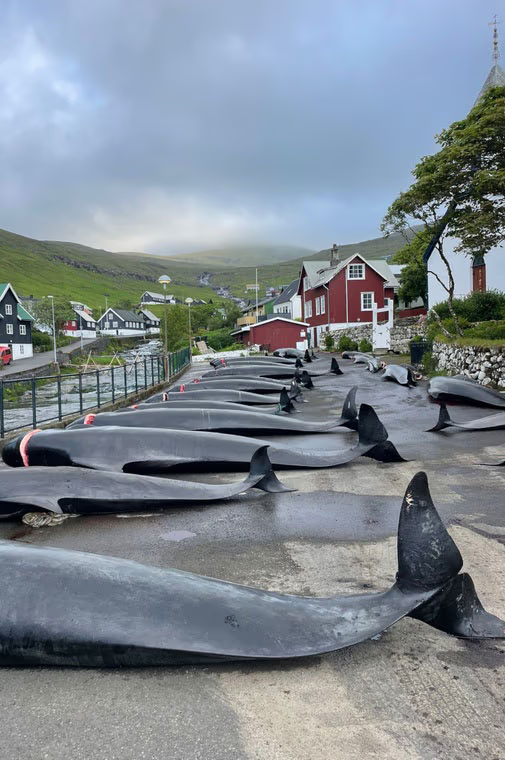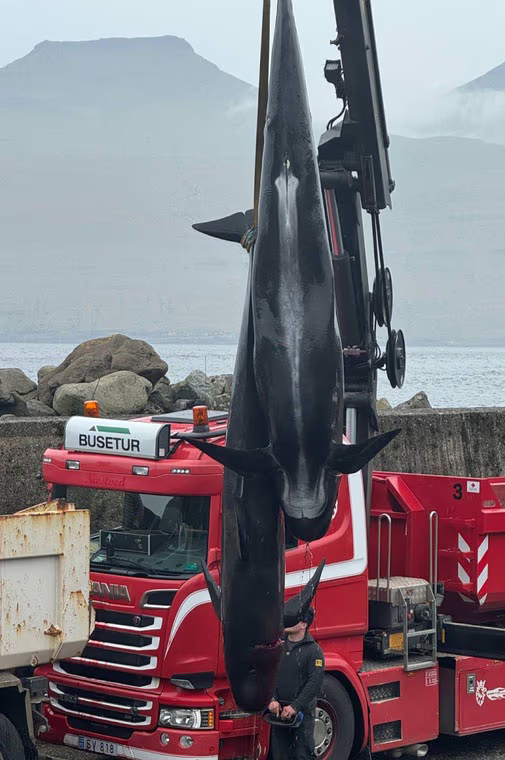Despite protests from environmentalists and public outrage, local authorities continue to permit mass whale hunts under the guise of cultural tradition. Hundreds of animals are killed each year during the Grindadráp—a ritual officially recognized as part of national heritage, but increasingly viewed as an act of senseless cruelty. The lack of external pressure, support from local politicians, and disregard for scientific evidence on the suffering of marine mammals have made such incidents not an exception, but the norm.
Another incident has reignited debate over the brutality of the traditional whale hunt—Grindadráp—in the Faroe Islands. On June 13, in the bay of Leynar, 246 pilot whales were killed, including pregnant females and newborn calves, according to the environmental group Sea Shepherd.





Pilot whales killed in Leynar, Faroe Islands. June 2025.
Despite official claims that the procedure is "quick and humane," eyewitnesses reported an hour-long chase followed by more than thirty minutes of violent slaughter. Some of the whales, according to activists, showed injuries caused by boat propellers. Calves—deemed "non-edible"—were not officially counted in the tally; there were at least 64 of them.
This is not the first time that the scale and brutality documented by Sea Shepherd have provoked strong criticism both domestically and internationally. In 2021, the mass killing of 1 428 dolphins triggered a global scandal, yet Faroese authorities continue to defend the legality and "traditional" nature of such hunts.
"What kind of proud tradition allows the mass killing of mothers and calves?" asks Sea Shepherd coordinator Valentina Krast.
Despite protests and international pressure, the practice has yet to be halted. The latest incident in Leynar revives an old question with renewed urgency: can tradition ever justify such cruelty?
